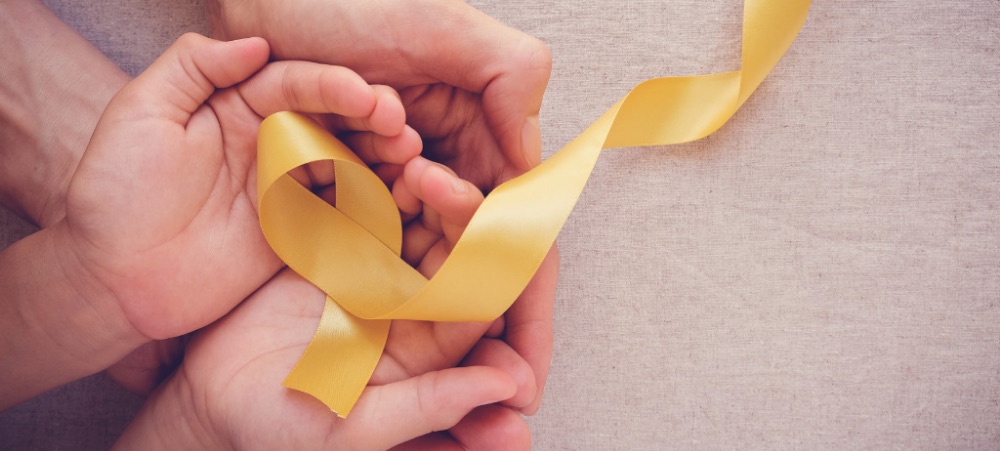Of the 800 to 1 000 children that are diagnosed with cancer in South Africa each year, more than half tragically go undiagnosed.
Dr Charlotte Ingram, Medical Director at the SA Bone Marrow Registry (SABMR) says SA has among the highest childhood cancer mortality rates with two thirds of children never reaching a specialist treatment centre and when they do, their cancer is often at an advanced stage.
“Many childhood cancers are treatable with cure rates of between 70% and 80% in well-resourced countries, while in contrast, eight in ten African children with cancer die without access to adequate care. Despite SA having an established oncology healthcare service, its infrastructure is overburdened, which is further impeded by low cancer awareness in the primary healthcare setting and widespread service delivery challenges.”
She says unlike adult cancers, childhood cancer is difficult to prevent or screen for because the causative genetic and environmental factors are less understood, but if it is detected early, most children can be treated successfully.
“Knowing what the early warning signs are is vital in order for treatment to commence as soon as possible. Unfortunately, among certain local ethnic groups, there is still a lot of stigma and myths that surround childhood cancer. Some of these include:

Two of the most common childhood cancers in South Africa are leukaemia and lymphoma.
Leukaemia is caused by a rise in the number of white blood cells in the body and accounts for a quarter of all childhood cancer cases in the country. Early symptoms include chronic fatigue, bone and joint pain, weakness, easy bleeding or bruising, recurrent nosebleeds, swollen lymph nodes, fever and unexplained weight-loss.
Lymphoma is triggered by tumours that begin in the lymph glands, the spleen, thymus gland and bone marrow and can affect other organs throughout the body as well. Look out for painless swelling of lymph nodes in the neck, armpits or groin, persistent fatigue, fever, night sweats, weight-loss and itchy skin. If any of these signs or symptoms persist, its best to make an appointment with a doctor who will be able to conduct tests to rule out the possibility of blood-related cancers.
Dr Ingram explains that in many cases, a bone marrow transplant, which is also referred to as a stem cell transplant is used to treat leukaemia and lymphoma and other blood and immune system diseases that affect the bone marrow.
“Childhood cancers are different from those found in adults as most of them occur in developing cells such as bone marrow, blood, the kidneys and nervous system tissues. Chemotherapy kills both cancerous and healthy blood cells inside the bone marrow, which is why transferring a new, healthy set of blood stem cells by way of a bone marrow transplant, helps their immune systems to recover from the intense treatment. Replacing diseased or damaged cells with non-cancerous stem cells will help the body to make healthy cells.
“At the moment, SA’s overall childhood cancer survival rate is at an unacceptably low 52%, nearly 30% less than in developed nations. In 2018, the World Health Organisation (WHO) established the Global Initiative for Childhood Cancer, which aims to achieve a global survival rate of at least 50% for all children diagnosed with cancer within the next decade.
“To deliver on that promise, policymakers need to prioritise childhood cancer by:
- Debunking the misconceptions around childhood cancer among a large percentage of our population;
- Increasing our country’s capacity to deliver quality services for children living with the illness, along with access to care;
- Whilst also increasing the number of bone marrow donors. Currently, only 73 000 donors are part of the national registry, which is miniscule if you consider that more than 23 million people are eligible.”
Do your bit by helping the SABMR spread awareness around childhood cancer this month by sharing its social media posts with family and friends:
https://www.facebook.com/sabonemreg/
https://www.instagram.com/sabonemreg
If you are between the ages of 16 and 45 and want to become a donor, contact the SABMR on 021 447 8638 or email: [email protected]. Financial donations can also be made via www.sabmr.co.za/donate to help boost funds for their Patient Assistance Programme.
We understand that there are many aspects that encompass a Mother, Father or Child and strive toward providing resources and services that accommodates this.
Our content is aimed to inform and educate families on issues starting from pregnancy through to the challenges of the teen-age years.
- Tiny Toons Looniversity Returns: Meet the Voice Behind Plucky and Hamton! - December 12, 2025
- From Pain to Possibility: Panado®’s New Marketing Campaign, Highlights The Joy Of Pain Relief - December 10, 2025
- Feeding Unicorns by Jeni-Anne Campbell: A bold new book for business leaders who care - December 9, 2025





